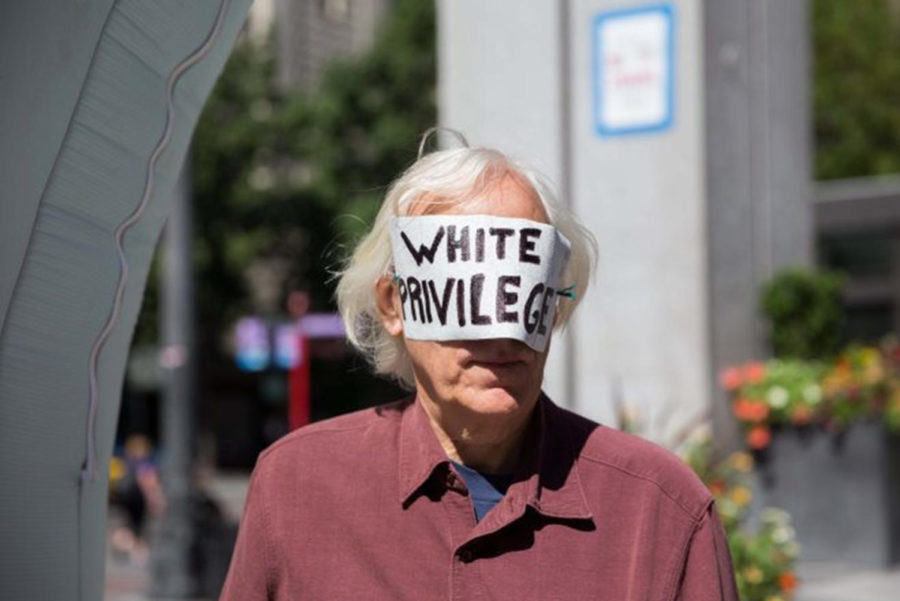Johnson: Face your privilege
white privilege man.jpg
July 1, 2019
We live in a nation where it is blatantly obvious that when you are a middle class, straight and white man there are a lot of privileges and advantages that you possess. It is also fairly clear that in the new Democratic Party, which is being flushed with a new Progressive movement, as is indicated in the nominees for President, that diversity and youth in our elected officials is reaching new and amazing heights.
Of the 62 Democratic freshmen to be elected to the house in 2018, 35 were women. Outside of national politics, there are incredible stories such as Rep. Park Cannon who, as a queer black woman, was elected to the Georgia State House at the age of 22. These examples of amazing diversity in our politics are representative of a wave of new ideas that coincide with the new types of people able to have their voice heard in the political sphere.
Now how do I, or those like me, reckon with this? Where do we step in and where do we not? There is a common problem of feeling uncomfortable in talking about what to do. Feeling uncomfortable in confronting centuries of systematic racism, misogyny and homophobia is understandable, but the only way to overcome this fear is by facing it.
I was put in such a situation while attending a voter activism summit and talking about diversity in politics. In my head I thought, “In a world where more female and minority voices need to be heard, why should I bring my voice forward?” Not that the people I talked to were the ultimate authority on anything but the response to someone like me wanting to talk about it was, to me, well received. It allowed me to put myself into situations where I could make mistakes and learn from them. This was amazing, as it put me in a place where I couldn’t run even if I tried.
What I learned, through conversation with the many amazing people that I met at that conference, was that the solution to the problem can be summed up in one word: “ally.” If I can recognize the privilege that I have, then I can use that privilege to lift up those voices who are still not heard in the capacity that they deserve.
Now, how do we apply this to the political arena?
Having a political movement dominated by unconventional backgrounds and ethnicities does not mean people that look like me are not welcome. Recognizing the privilege I have is only the first step, and while it is important, it doesn’t actually accomplish anything. The progress occurs when I use this privilege to lift up those that are disadvantaged by centuries of bigotry. I can’t completely solve racism, sexism, homophobia or anything else in writing this article, but I think it’s important to bring these ideas up and start a conversation. The more and more people who are comfortable with talking on this subject, the more representative our democracy becomes.
















